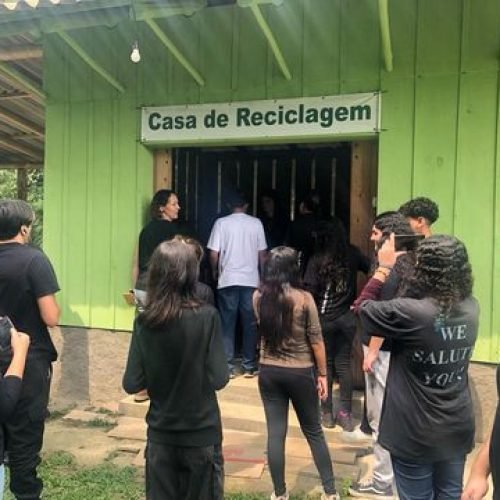The project aims to meet three demands present in the community:
- To help farmers from APRUMUS (Association of Rural Producers and Residents of Mundo Novo do Saquarema) and COLIPA (Cooperative of Agroecological Producers of the Serra do Mar Region and the Coast of Paraná) in the storage of minimally processed products, increasing the speed of freezing and proper packaging. The activity will be carried out in the agro-industry of an APRUMUS member or in the agro-industry of a COLIPA cooperative member.
- To help producers and residents who are members of APRUMUS and COLIPA cooperative members to produce animal feed or fertile soil for use in flowerbeds and seedling production, using community composting. Composting will be done by grinding up waste from the minimal processing of plant foods or from cleaning the properties of members and cooperative members.
- Improving air quality by avoiding the burning of vegetable waste from the cleaning of members' and cooperative members' properties. This last demand will also have a positive effect on everyone's health and the environment, since in rural areas it is still customary to burn plant remains to "clean" the land.
The production of fruit pulps (such as passion fruit and acerola), as well as cassava production, are activities carried out by the majority of rural producers in the region's rural communities. After being cleaned and prepared, these foods can be sold fresh or minimally processed, i.e. frozen and packaged, which increases the time they can be used by consumers. For the farmer, this can mean more time to offer the product, or even doing so in times of scarcity, which can guarantee a better price due to the law of supply and demand.
In the Mundo Novo community, we already have storage capacity (cold room at -20°C), but during the harvest season, the limiting factor is the freezers. Some products take several days to freeze completely. The purchase of a deep-freezer will eliminate this bottleneck. It must be used by a trained person who is able to work on site.
Fresh plant waste, such as bark and branches, once shredded, can be used both for animal feed and to make compost, which is used to fertilize and prepare the soil before planting. APRUMUS already has several initiatives to reduce waste in the community. We have a collection point for recyclable material, where each resident who delivers their recyclables can be paid for the material. Since its implementation, the project has resulted in cleaner streets and a less polluted river.
As well as collecting recyclables, the site also receives used cooking oil, which is turned into ecological soap and exchanged by the residents. The glass collected will be used in a project already approved by the Rouanet Law, where it will be fused and transformed into works of art and household utensils, such as fruit bowls and decorative plates. We are looking for funds to start the project, and the smelting furnace is already in an appropriate place to receive the workshop students.
The final step towards becoming a "zero waste" rural community is the implementation of community composting. Our employees will be trained to be responsible for using the equipment. The shredder may only be used by authorized and trained personnel. Should the need arise, the employee will be able to provide guidance at the place of use, and the user will have to compensate the employer for the costs of hours worked and travel.


